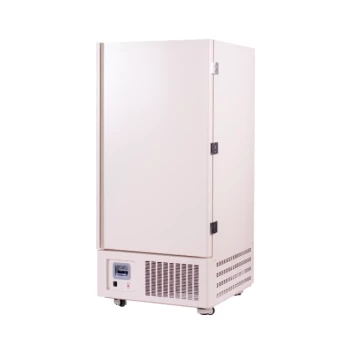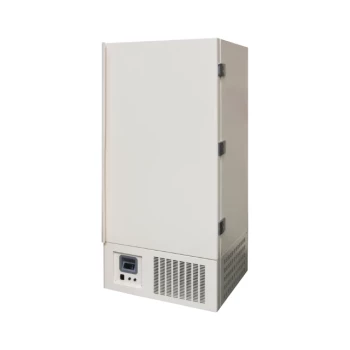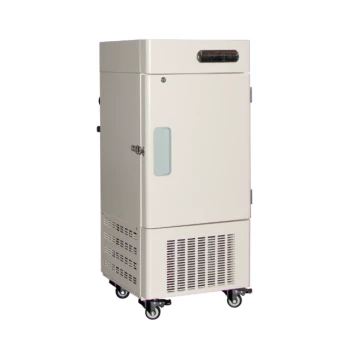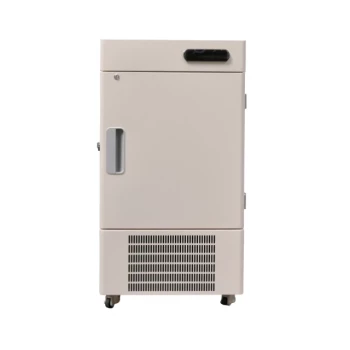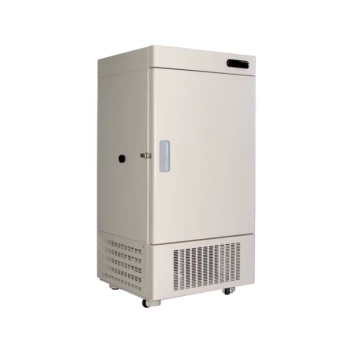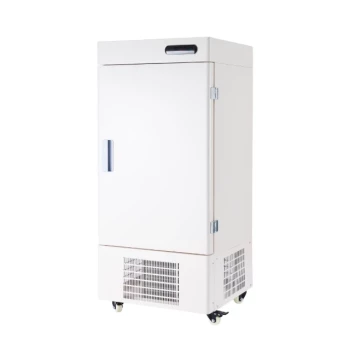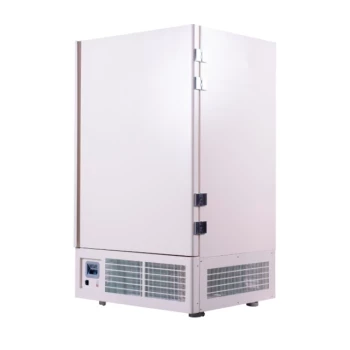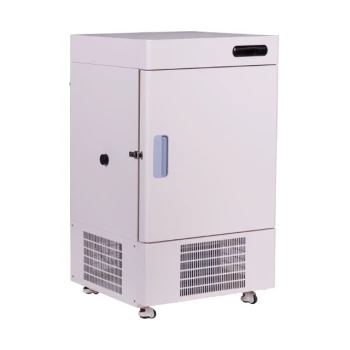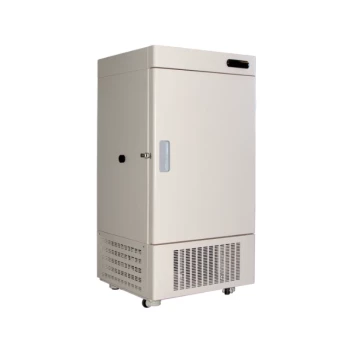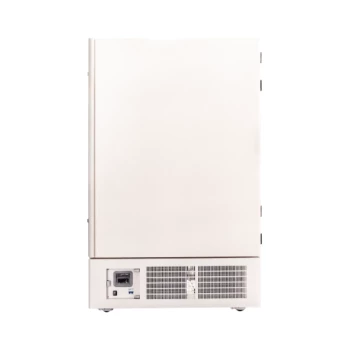At its core, a ULT freezer improves the storage life of medical components by using extreme cold to effectively pause time at a molecular level. By maintaining temperatures between -70°C and -86°C, these freezers halt the biochemical and enzymatic reactions that cause biological samples to degrade, thereby preserving their integrity and viability for months or even years.
The fundamental value of an Ultra-Low Temperature (ULT) freezer is not just making things cold, but achieving a state of suspended animation for biological materials. This process stops cellular decay, ensuring that samples like cells, tissues, and sensitive vaccines remain stable and effective for long-term use.
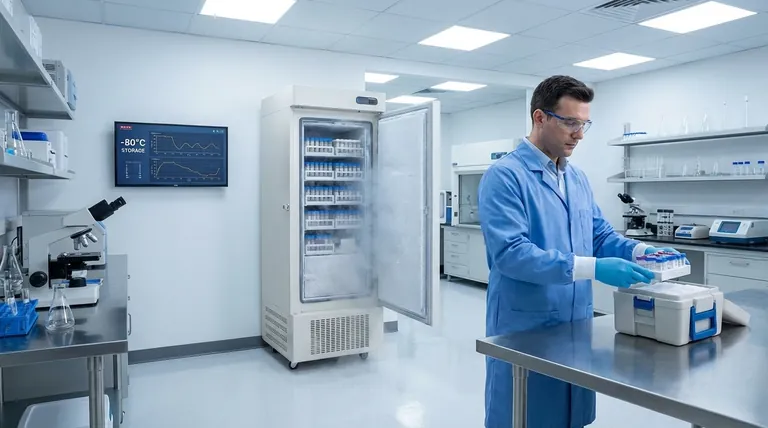
The Fundamental Principle: Halting Biological Activity
To understand how ULT freezers work, we must first understand what they are fighting against: the natural process of decay. At normal or even standard freezer temperatures, biological and chemical processes continue, just at a slower rate. ULT freezers bring these processes to a near-complete stop.
Stopping Enzymatic and Metabolic Reactions
Enzymes are the catalysts for almost all activity within a cell, including the processes that lead to breakdown and death.
At the ultra-low temperatures inside a ULT freezer, molecular motion is so drastically reduced that these enzymatic reactions effectively cease. This preserves the internal structure and function of cells, tissues, and complex molecules.
Maintaining Structural Integrity
The physical structure of a cell or a delicate molecule is critical to its function. Improper freezing can destroy this structure.
ULT freezers facilitate rapid cooling that helps prevent the formation of large, disruptive ice crystals which can puncture cell membranes. This maintains the physical integrity and viability of the sample, which is crucial for research and clinical applications.
Ensuring Long-Term Chemical Stability
Many modern pharmaceuticals, especially biologic drugs and certain vaccines, are highly complex molecules that are sensitive to temperature.
A prime example is the mRNA COVID-19 vaccines. They can be stored for up to six months in a ULT freezer at -70°C, but last only a few weeks in a standard laboratory freezer. This extended lifespan is a direct result of the extreme cold preventing the breakdown of the fragile mRNA molecules.
The Technology That Enables Preservation
Achieving and maintaining these extreme temperatures requires specialized technology designed for reliability and precision. The value of the samples stored within a ULT freezer is often irreplaceable, making equipment failure unacceptable.
Precision Temperature Control
Even small temperature fluctuations can be damaging, causing partial thawing and refreezing cycles that compromise sample integrity.
ULT freezers use advanced refrigeration technology and robust insulation to maintain a highly constant temperature. This stability is a core feature that ensures consistent, long-term preservation.
Fast Cooling and Recovery
Every time the freezer door is opened, warm air enters and the internal temperature rises.
Modern ULT freezers incorporate fast cooling technology that rapidly brings the temperature back down to its setpoint. This minimizes the duration of temperature exposure for the stored components and reduces overall power consumption.
Failsafes and Redundancy
The greatest threat to long-term storage is an unexpected loss of power or equipment malfunction.
To mitigate this risk, ULT freezers are equipped with critical failsafes. A back-up battery system ensures that alarms and monitoring continue to function during an outage, and in some cases can provide temporary cooling until power is restored or samples can be moved.
Understanding the Trade-offs and Best Practices
While indispensable, ULT freezers are specialized pieces of equipment that require significant investment and proper management to operate effectively and safely.
High Energy Consumption
Maintaining a temperature differential of over 100°C from the ambient room temperature is an energy-intensive task. While modern units are far more efficient than older models, they represent a significant operational cost for any facility.
The Importance of Regular Maintenance
The performance of a ULT freezer is directly tied to its physical condition. Compromised door seals, dusty condenser coils, or malfunctioning sensors can lead to temperature instability and eventual failure. A strict, regular maintenance schedule is essential for protecting the freezer's valuable contents.
Adherence to Safety Protocols
Working with materials at -80°C poses unique safety challenges, including the risk of severe cold burns (frostbite). Proper personal protective equipment (PPE), such as cryogenic gloves and eye protection, is non-negotiable when handling samples.
Making the Right Choice for Your Goal
Selecting the appropriate storage solution depends entirely on the stability of the material and the required duration of storage.
- If your primary focus is the long-term viability of cells, tissues, or DNA: A ULT freezer is essential. It is the only way to halt biological activity sufficiently to ensure samples remain viable for years.
- If your primary focus is the extended storage of sensitive vaccines or pharmaceuticals: A ULT freezer is critical for maintaining chemical stability and efficacy far beyond the limits of standard refrigeration.
- If your primary focus is short-term storage of common reagents or stable proteins: A standard -20°C laboratory freezer is often sufficient and is a more energy and cost-effective solution.
Ultimately, a ULT freezer is an essential tool for pausing biological time, safeguarding invaluable assets that are critical to the future of research and medicine.
Summary Table:
| Key Benefit | How It Works | Impact on Storage Life |
|---|---|---|
| Halts Biological Activity | Stops enzymatic/metabolic reactions by reducing molecular motion | Preserves sample integrity for months or years |
| Maintains Structural Integrity | Rapid cooling prevents large, disruptive ice crystals | Protects cell membranes and molecular structures |
| Ensures Chemical Stability | Prevents breakdown of sensitive molecules (e.g., mRNA vaccines) | Extends pharmaceutical efficacy far beyond standard refrigeration |
Ready to protect your most critical samples? A reliable ULT freezer is essential for long-term preservation of cells, tissues, and sensitive pharmaceuticals. At KINTEK, we specialize in high-performance lab equipment designed to meet the rigorous demands of modern laboratories. Our ULT freezers offer precise temperature control, rapid cooling recovery, and critical safety features to ensure your valuable medical components remain viable for years.
Contact our experts today to find the perfect storage solution for your lab's unique needs and discover how KINTEK can support your research and medical storage goals.
Visual Guide
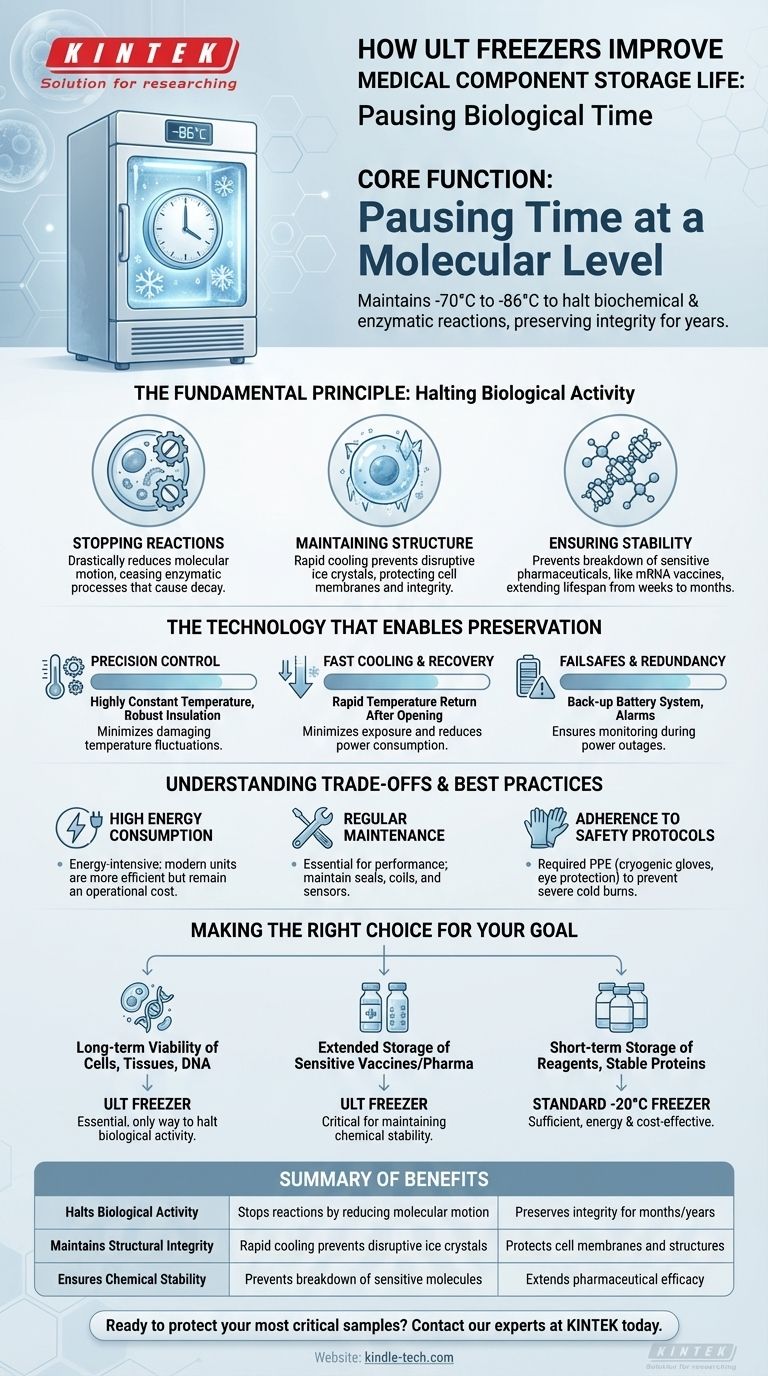
Related Products
- 508L Advanced Vertical Ultra Low Temperature Freezer for Critical Laboratory Storage
- 408L Advanced Vertical Laboratory Ultra Low Temperature Freezer for Critical Research Material Preservation
- 608L Essential Laboratory Ultra Low Temperature Freezer For Critical Sample Preservation
- 708L Ultra Low Temperature Freezer High Performance Laboratory Freezer
- 28L Compact Upright Ultra Low Temperature Freezer for Laboratory
People Also Ask
- What are the key features to look for in an ultra-low temperature freezer for mRNA vaccine storage? Essential Features for Absolute Vaccine Integrity
- What are ultra-low temperature freezers designed for? Preserving Your Most Valuable Biological Samples
- How is temperature controlled in ultra low temperature freezers? A Guide to Stable -80°C Storage
- How does fast temperature recovery benefit ultra-low freezers? Protect Sample Integrity and Lab Efficiency
- Why are ULT freezers considered vital equipment in labs? Ensuring Uncompromised Sample Integrity for Critical Research

